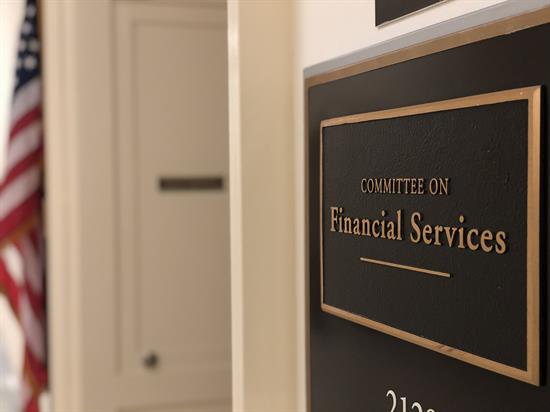House advances three bills to improve financial oversightBy: Dave Kovaleski, Financial Regulation News
Washington,
January 30, 2019
The U.S. House of Representatives advanced three bills that seek to foster better financial oversight of potential bad actors and illegal activities. One of the bills is the Promoting Transparent Standards for Corporate Insiders Act (H.R. 624), sponsored by House Financial Services Chair Rep. Maxine Waters (D-CA) and Ranking Member Rep. Patrick McHenry (R-NC). This bill would protect ‘Mom and Pop’ investors from illegal insider trading and helps the Securities and Exchange Commission (SEC) better understand how to prevent illicit activity. “Preventing and cracking down on fraud and abuse within our financial system, such as illegal insider trading, is apolitical. When a corporate insider breaks the rules on trading and profits from trading on insider information, that illegal activity hurts the everyday investor who diligently puts their hard-earned money away for retirement,” McHenry said. “By directing the SEC to study whether Rule 10b5-1 should be amended and to consider how any amendments to the rule would clarify and enhance existing prohibitions against insider trading, this legislation achieves the bipartisan goal of protecting Mom and Pop investors while encouraging economic growth.” The second measure advanced is the FIND Trafficking Act (H.R. 502), sponsored by Reps. Juan Vargas (CA-51) and Ann Wagner (R-MO). The legislation directs the Government Accountability Office (GAO) to study how virtual currencies are linked to the supply chain for drugs and human trafficking. It also provides insights into how these links can be severed. “In its 2017 National Drug Assessment, the Drug Enforcement Administration (DEA) concluded that transnational criminal organizations are increasingly using virtual currencies for illicit activities, including drug trafficking. This includes illicit transactions with China, as well as the sale and purchase of narcotics, including those involved with our country’s opioid crisis,” McHenry said. “This bipartisan legislation is an instrumental first step towards analyzing how virtual currencies and online marketplaces are used to buy, sell, or facilitate the financing of goods and services associated with human and drug trafficking.” Finally, the House advanced the Financial Technology Protection Act (H.R. 56), introduced by Reps. Stephen Lynch (D-MA) and Ted Budd (R-NC). This bill would establish an Independent Financial Technology Task Force to combat the use of financial technologies, like digital currencies, to fund terrorism. “Recent studies have found evidence that terrorists, especially ‘lone wolf terrorists,’ use digital currencies. A public/private Task Force, as established through this legislation, can inform Congress on the legislative and regulatory steps needed to stop these bad actors,” McHenry said. “Furthermore, this bipartisan bill would incentivize individuals to come forward with knowledge of possible terrorist and illicit finance involving digital currencies by offering monetary rewards for information that leads to successful convictions.” |


